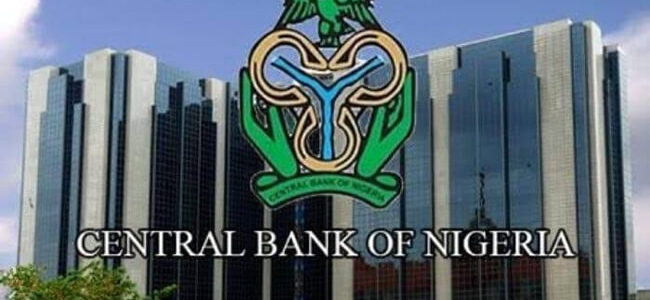
The Central Bank of Nigeria (CBN), has said that 16 banks have successfully scaled through the recapitalisation hurdle, meeting the revised capital requirements set under its ongoing banking sector reforms.
CBN Governor, Olayemi Cardoso, disclosed this during the bank’s 303rd Monetary Policy Committee (MPC) meeting held in Abuja on Tuesday.

Cardoso said another 27 banks are in the process of raising capital, with the apex bank closely monitoring developments to ensure the exercise stays on track and strengthens the financial sector.
He also revealed that the bank has recovered over N2 trillion from outstanding intervention loans, after a systematic clean-up of its balance sheet.

According to the CBN boss, the recoveries and recapitalisation progress reflect the Bank’s resolve to strengthen the financial system, restore credibility, and improve the transmission of monetary policy, noting that legacy exposures in intervention programmes had distorted credit patterns and complicated macroeconomic management.
The Governor also announced that the Monetary Policy Rate (MPR) will be maintained at 27 per cent, citing the need to preserve macroeconomic stability. However, the bank adjusted the asymmetric corridor around the MPR to +50 and –450 basis points. Other parameters, including the Cash Reserve Ratio (CRR) of 45 per cent for commercial banks and the liquidity ratio of 30 per cent, were left unchanged.
Justifying the decision, Cardoso said the move was influenced by the continuing slowdown in inflation, which fell sharply to 16.05 per cent in October from 18.02 per cent in September. Food inflation also dropped significantly to 13.12 per cent, supported by improved harvests and a more stable foreign exchange market.
According to him, the data showed that earlier rate hikes are now transmitting strongly across the economy, adding that loosening policy at this stage would risk reversing the gains.
Nigeria’s external reserves, he revealed, have surged to $46.7 billion, marking the highest level in seven years and equivalent to about ten months of import cover. The growth, according to Cardoso, has been driven by higher oil and non-oil exports, rising international remittances, and increased portfolio investment into the country. He stressed that the reserves are being accumulated on a systemic and transparent basis, boosting confidence among domestic and foreign investors.
The CBN chief also pointed out gains of improved foreign exchange market, saying the spread between official and parallel market rates has narrowed to two per cent from around 60 per cent in the past.
On Nigeria’s removal from the FATF Grey List, Cardoso said the achievement demonstrates strong collaboration among agencies like the CBN, NFIU, SEC, EFCC, and Ministry of Finance.
The exit, he explained, enhances foreign investment, improves correspondent banking relationships, and reduces costs for remittances.
He also defended the Bank’s shift to a catalyst model, pulling back from direct intervention in development finance to encourage private sector innovation and prevent moral hazard.
Cardoso reaffirmed the importance of cooperation between fiscal and monetary authorities, saying the collaboration ensures inflation targeting and sustainable economic growth. He noted that transparency, policy consistency, and trust are key to maintaining confidence among investors and Nigerians alike.
“So with the commercial banks, they too are in the process of creating buffers. Because this is exactly what comes as a result of the recapitalisation that we are presently going through. 16 of them have fully complied. 27 of them have through various means raised capital. We are monitoring the developments. And from every indication, it is going in the right trajectory.
“Now, we did a survey, a small study of interventions in the Central Bank. And we came out with certain numbers, which showed that the total amount of interventions is about N10.93 trillion. Now, out of those interventions, we still have an outstanding of N4.69 trillion. Since we have come, we have been able to rein back about 2 trillion. Now, this is a humongous amount of money. So, what is still outstanding really and truly ties our hands in terms of additional interventions. I think I have to make that very clear.
“The issue of macro stability and the gains of macro stability, to my mind is the core of the matter. That to the extent that we have accomplished stability, stability is a very fundamental process in the road to growth. You will recall that about a year and a half or two years ago, there was a lot of instability in our markets. And when there is instability, those who would normally invest, stay away. Now we have moved from a situation where there is stability, and after stability comes investment, and after investment comes growth.That is what will ultimately deliver tangible relief for Nigerians.
“Right now, we are about 10 months import cover. It is even more than it appears because of significant liquidity within the market that may not be visible to casual observers.
“With a more competitive currency, there is more exports, greater drive for non-oil exports, and increased attractiveness for portfolio investors. Collectively, these factors have strengthened our reserves on a systemic basis.
“The foreign exchange market is now open, transparent, and disciplined. On a daily basis, we have around half a billion dollars in market activity, often without CBN intervention. This is unprecedented in Nigeria.
”Exiting the FATF Grey List is way beyond compliance. It demonstrates strong collaboration among agencies and sends a positive signal to investors, international banks, and remittance operators.
“The catalyst model works because it encourages innovation and responsible investment. Our hands are tied from interventions, but we use our convening power to support those who want to make a meaningful impact.
“Our vision is to be a trusted and respected centre for promoting confidence in the economy. With trust and respect comes confidence, which is built through transparency, consistency, and policy integrity. Anything that stands in the way of creating confidence, we will root it out.”
Credit: The Sun
